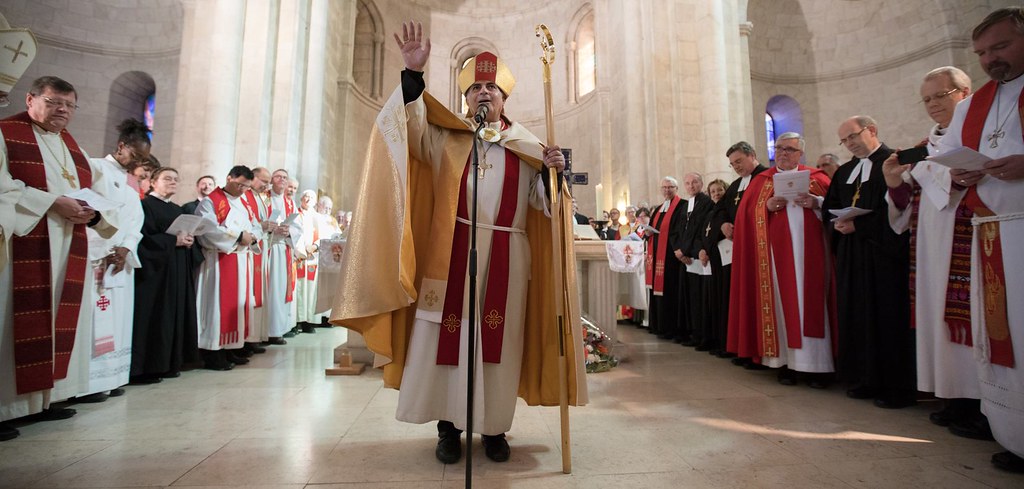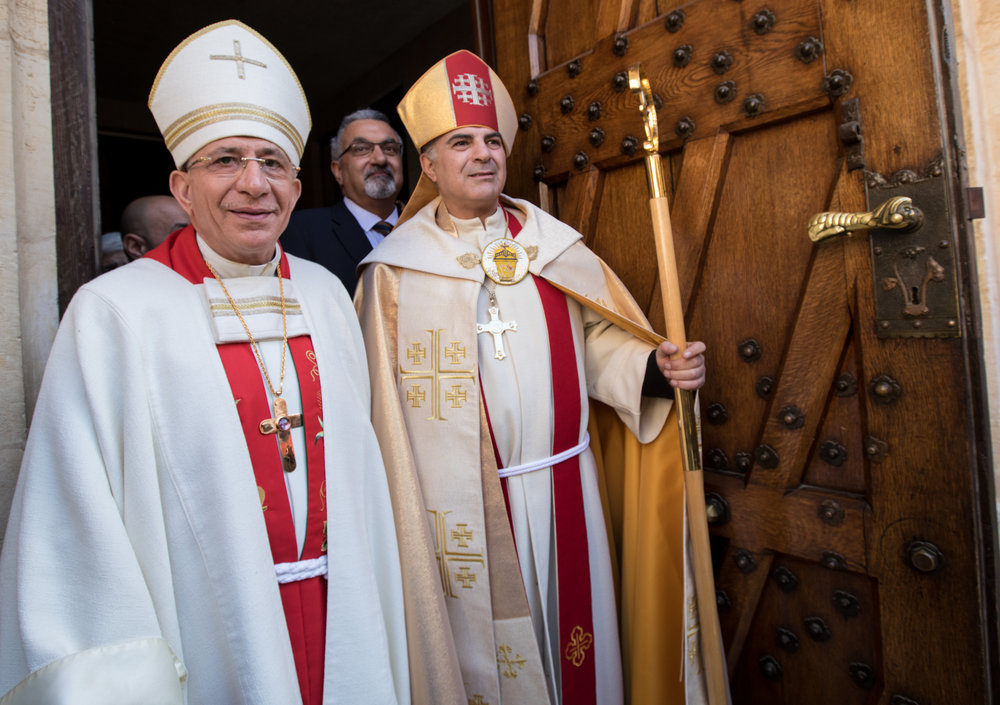
Una Chiesa per l’unità: la Chiesa Luterana in Giordania e Terra Santa
di Riccardo Burigana
La Chiesa Luterana in Giordania e Terra Santa (Evangelical Lutheran Church in Jordan and the Holy Land – ELCJHL) da anni è impegnata nella promozione dell’unità dei cristiani in Medio Oriente, con un’attenzione particolare per la costruzione della pace, grazie al contributo dei cristiani, chiamati a testimoniare, insieme, l’amore misericordioso di Dio che aiuta la riconciliazione delle memorie.
La storia della presenza dei luterani è relativamente recente, infatti risale alla meta del XIX secolo, quando i missionari tedeschi e anglosassoni iniziarono un’opera di sostegno alle comunità cristiane, già presenti nell’area. Ben presto la presenza di questi missionari determinò una nuova stagione di evangelizzazione, rivolta a tutti gli abitanti della regione, con lo scopo di creare una comunità protestante. I primi frutti di questa opera furono la costituzione di una serie di comunità locali che nel 1841 furono unite in una diocesi anglicana-luterana che già nel 1845 aprì un ospedale, mentre nel 1851 prese l’avvio il progetto per la creazione di una scuola femminile, la prima della regione e nel 1860 venne inaugurato un orfanotrofio. L’esperienza di una chiesa locale, formata da luterani e anglicani, si interruppe nel 1866 per ragioni politiche, cioè per la politica prussiana per la creazione di un impero tedesco, con una spinta nazionalista che investiva anche le comunità religiose tedesche nel mondo, anche se era ormai evidente che erano diverse le prospettive luterane da quelle anglicane nella regione. I luterani erano interessati alla creazione di strutture educative e sociali nella convinzione che questo fosse la strada per alleviare i bisogni materiali e spirituali degli uomini e delle donne della regione. Per decenni questa attività portò a una lenta crescita dei membri della comunità che solo dopo la fine della seconda Guerra Mondiale cominciò a dotarsi di una struttura autonoma.
Il 7 maggio 1959 il re Hussein approvò il riconoscimento della Chiesa Evangelica Luterana in Giordania che, nel corso degli anni, cominciò a crescere, anche per l’accoglienza ai profughi dallo Stato d’Israele. Al tempo stesso la Chiesa luterana di Giordania aveva iniziato un percorso per la trasformazione di una Chiesa di missionari a una Chiesa locale tanto che nel 1974 entrò a far parte della Federazione Luterana Mondiale, istituita nel 1947. Nel 1979 venne eletto il primo vescovo palestinese, il reverendo Daoud Haddad, che divenne un punto di riferimento non solo per i luterani della regione per il suo impegno per il dialogo ecumenico, rafforzando un cammino che doveva poteva diventare una delle peculiarità della Chiesa luterana di Giordania, che nel 2005 aggiunse al suo nome “Terra Santa” in modo da rendere ancora più esplicita l’idea di una cura pastorale che comprendesse non solo più la Giordania ma anche lo stato di Israele e l’Autorità Palestinese, riaffermando la priorità dell’impegno ecumenico per la pace nella regione.
Questa vocazione ecumenica per la pace assunse una nuova dimensione, nel 1998, con la nomina a vescovo del rev. Younan Munib, da sempre impegnato negli organismi ecumenici internazionali, a partire dal Consiglio delle Chiese Cristiane del Medio Oriente fino al Consiglio Ecumenico delle Chiese, che accolse la Chiesa luterana di Giordania e Terra Sante nel 2013, proprio durante il ventennio di presidenza del vescovo Munib. Questi, nel 2010, venne chiamato alla presidenza della Federazione Luterana Mondiale, che raccoglieva 148 membri in 99 Paesi, con l’incarico di guidare i luterani nel tempo della preparazione e alla celebrazione del 500° anniversario dell’inizio della Riforma (1517-2017). Proprio grazie al vescovo Munib questo anniversario divenne un’occasione ecumenica, particolarmente feconda per il ripensamento dei rapporti tra cristiani, con un rinnovato impegno per una testimonianza comune della Parola di Dio, così come venne detto e sottoscritto nella preghiera ecumenica di Lund (31 ottobre 2016), presieduta dal vescovo Munib e da papa Francesco.
Proprio da presidente della Federazione Luterana Mondiale il vescovo Munib intervenne, nel febbraio 2017, a Firenze, a un convegno per il 500° anniversario dell’inizio della Riforma, all’interno di un progetto internazionale di ricerca storico-religiosa, Rileggere la Riforma, coordinato dal Centro Studi per l’Ecumenismo in Italia; in quell’occasione il vescovo Munib pronunciò un intervento, Re-reading the Reformation, pubblicato sulla rivista della Fondazione Giovanni Paolo II, «Colloquia Mediterranea» [7 (2017), pp. 9-18], con il quale la commemorazione comune della Riforma doveva aprire strade nuove alla testimonianza ecumenica, soprattutto per la costruzione della pace, radicata sui valori cristiani del dialogo, dell’accoglienza e della condivisione.
Alla guida della Chiesa Luterana della Giordania e della Terra Santa, che ha la sua sede nella Chiesa del Redentore, a Gerusalemme, il 12 gennaio 2018 è stato eletto il vescovo Sani Ibrahim Charlie “Barhoum” Azar, che ha proseguito l’opera del suo predecessore, il vescovo Munib, per un impegno concreto e quotidiano nella costruzione della pace come impegno prioritario dei cristiani, chiamati a essere “sale del mondo”.

